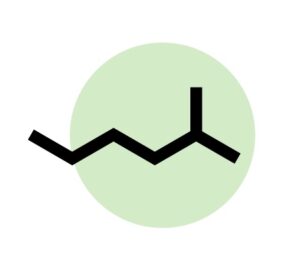In the intricate and fascinating world of neuroscience, neurotransmitters play pivotal roles in orchestrating the myriad functions of the nervous system. Among these chemical messengers, gamma-aminobutyric acid, or GABA, stands out as a crucial inhibitory neurotransmitter. Despite its importance, GABA often flies under the radar compared to its more famous counterparts like dopamine and serotonin. This post delves into the significance of GABA, its functions, and its impact on our health and well-being.
What is GABA?
GABA, short for gamma-aminobutyric acid, is the primary inhibitory neurotransmitter in the mammalian central nervous system. This means that GABA’s main role is to reduce neuronal excitability throughout the nervous system. It achieves this by binding to GABA receptors on neurons, which leads to the opening of ion channels that allow negatively charged ions to enter the neuron, making it more difficult for the neuron to fire an action potential.
The Role of GABA in the Nervous System
The primary function of GABA is to inhibit or slow down the transmission of nerve impulses. This inhibitory effect is essential for maintaining the balance between excitation and inhibition in the brain. Here are some key roles of GABA:
- Regulation of Anxiety and Stress: GABA is known for its calming effects. By inhibiting excessive neural activity, GABA can help to reduce anxiety and stress. This is why many anti-anxiety medications, such as benzodiazepines, work by enhancing the effect of GABA.
- Promotion of Sleep: GABA also plays a significant role in promoting sleep. It helps in the transition from wakefulness to sleep and is involved in the regulation of sleep stages. GABA agonists are often used in medications for treating insomnia.
- Muscle Relaxation: By inhibiting motor neurons, GABA contributes to muscle relaxation. This is crucial for preventing conditions like muscle spasticity and for allowing the body to rest and recover.
- Prevention of Seizures: Adequate GABA function is essential for preventing seizures, which are caused by uncontrolled neuronal firing. GABAergic drugs are commonly used in the treatment of epilepsy.
GABA Receptors
There are two main types of GABA receptors: GABA_A and GABA_B. GABA_A receptors are ionotropic receptors that mediate fast synaptic inhibition by allowing chloride ions to enter the neuron. GABA_B receptors are metabotropic receptors that mediate slow synaptic inhibition through G-protein coupled mechanisms.
GABA and Mental Health
The significance of GABA extends to various mental health conditions. Dysregulation of GABAergic systems has been implicated in several disorders, including:
- Anxiety Disorders: Low levels of GABA are often associated with heightened anxiety and panic disorders. Enhancing GABA activity can help alleviate these conditions.
- Depression: There is evidence to suggest that GABA plays a role in depression. Some studies have found altered GABA levels in individuals with major depressive disorder.
- Schizophrenia: GABAergic dysfunction is also observed in schizophrenia, contributing to the cognitive and sensory processing deficits characteristic of the disorder.
Boosting GABA Naturally
While there are medications designed to increase GABA activity, there are also natural ways to support GABA production in the body:
- Diet: Consuming foods rich in GABA, such as fermented foods (kimchi, yogurt, miso), can help. Other GABA-boosting foods include whole grains, fruits, and vegetables.
- Exercise: Regular physical activity can enhance GABA levels and improve overall brain health.
- Mindfulness and Meditation: Practices like yoga and meditation can increase GABA levels and reduce stress and anxiety.
- Supplements: Certain supplements, like magnesium, vitamin B6, and the amino acid L-theanine, can support GABA production.
Conclusion
GABA may not be as well-known as other neurotransmitters, but its role in maintaining neural balance and supporting mental health is indispensable. From regulating anxiety and promoting sleep to preventing seizures and aiding in muscle relaxation, GABA’s influence is vast and profound. Understanding and supporting this crucial neurotransmitter can lead to better mental and physical well-being.
As research continues to uncover more about GABA and its functions, it remains an exciting and essential area of study in neuroscience. Whether through lifestyle choices, dietary adjustments, or therapeutic interventions, supporting GABA activity offers promising avenues for enhancing our health and quality of life.
